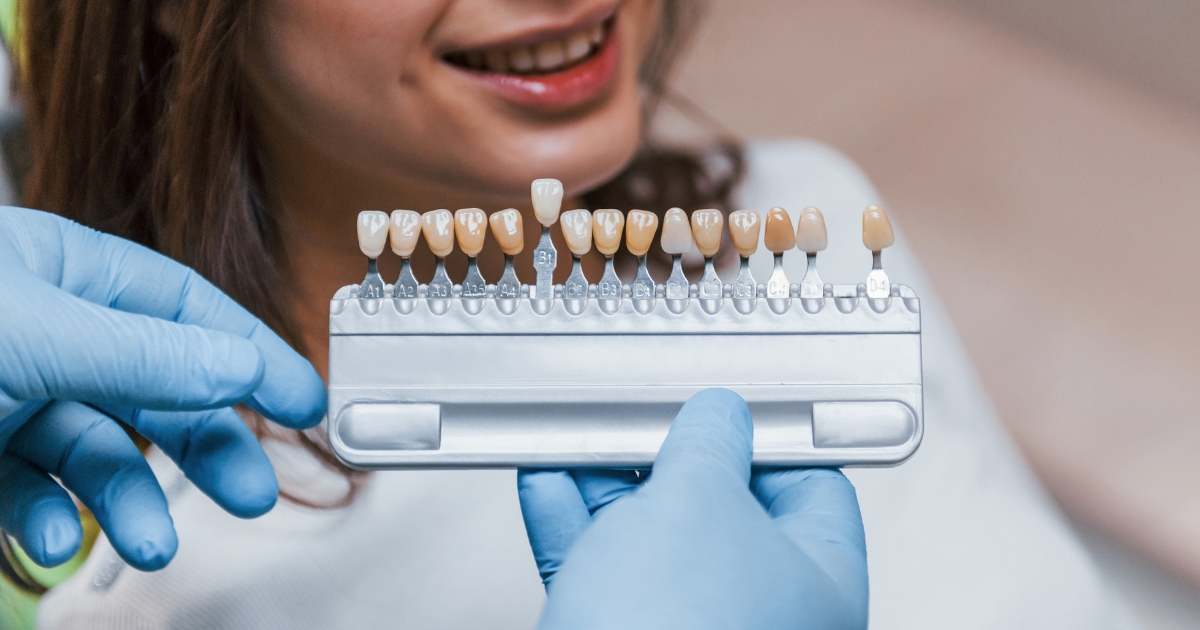
How Long Do Dental Veneers Last? : Tips to Make them Last Long
Dental veneers can transform your smile in a way you can only imagine. If you’ve ever dreamed of achieving that perfect grin, veneers might be the answer. These thin porcelain or resin composite shells bond to the front of your teeth, enhancing their appearance and providing a stunning transformation. But how long do they last? And what can you do to keep them looking fabulous? Let’s dive into the lifespan of dental veneers and explore tips for maximizing their durability.
How Long Do Dental Veneers Last?
Generally, dental veneers last between 5 and 15 years, depending on various factors such as material, maintenance, and individual habits. Here’s a closer look:
- Porcelain Veneers typically last 10 to 15 years. Their durability is one of the main reasons they are so popular. Plus, they resist staining better than their composite counterparts.
- Composite Veneers: These tend to have a shorter lifespan, averaging 5 to 7 years. They can be more cost-effective, but they require more maintenance to keep them looking fresh.
Knowing the expected lifespan can help you plan for maintenance and replacements, ensuring your smile remains bright and beautiful.
Factors Affecting the Lifespan of Dental Veneers
Several factors influence how long your dental veneers will last. Here’s what you should keep in mind:
- Oral Hygiene: Just like natural teeth, veneers need proper care. Brush and floss daily to keep your mouth healthy and prevent decay around the edges of the veneers.
- Diet: Certain foods can affect the longevity of your veneers. Hard foods can chip or crack them, while highly pigmented foods and beverages might cause discoloration.
- Teeth Grinding: If you grind your teeth at night, consider investing in a mouthguard. This habit can wear down your veneers much quicker than normal wear and tear.
- Regular Dental Visits: Routine check-ups and cleanings help maintain the integrity of your veneers. Your dentist can identify potential issues before they become serious problems.
Tips for Maximizing the Lifespan of Your Dental Veneers
Want to ensure your veneers stand the test of time? Here are some practical tips to help you get the most out of your investment:
- Maintain Excellent Oral Hygiene:
- Brush your teeth twice daily using a soft-bristled toothbrush.
- Use fluoride toothpaste to protect your natural teeth and prevent decay.
- Don’t forget to include flossing in your oral hygiene practices to keep the areas around your veneers clean.
- Avoid Hard and Sticky Foods:
- Limit hard candies, ice, and other hard foods that could chip your veneers.
- Steer clear of sticky foods like caramel or taffy, which can pull on the edges of the veneers.
- Stay Hydrated:
- Drink plenty of water to help rinse away food particles and bacteria.
- Water is an excellent choice over sugary drinks that can lead to decay.
- Limit Staining Foods and Beverages:
- Be mindful of coffee, red wine, tea, and berries. These can cause staining over time.
- If you indulge, rinse your mouth with water afterward to help minimize staining.
- Wear a Mouthguard:
- If you grind your teeth, a mouthguard can protect your veneers from excessive pressure and wear.
- Mouthguards are especially crucial for sports; a good one can prevent injuries to your teeth and veneers.
- Schedule Regular Check-Ups:
- Visit your dentist every six months for cleanings and exams.
- Regular visits allow for early detection of any issues and ensure your veneers remain in good condition.
- Follow Your Dentist’s Advice:
- Always listen to your dentist’s recommendations to maximize the lifespan of dental veneers.
- Don’t hesitate to follow through if they suggest additional care steps. Contact a cosmetic dentist near you.
Recognizing When to Replace Your Veneers
Even with excellent care, there might come a time when you need to replace your veneers. Here are some signs to watch for:
- Visible Wear: It may be time for a replacement if you notice changes in your veneers’ surface texture or color.
- Chipping or Cracking: Even minor chips or cracks can lead to severe problems. If you see these, consult your dentist.
- Discomfort or Sensitivity: Any discomfort can indicate that the veneer is compromised, so don’t ignore these signals.
Dental veneers can be a beautiful enhancement to your smile, but their longevity depends on several factors. By practicing good oral hygiene, avoiding harmful foods, and keeping up with regular dental visits, you can expand the lifespan of dental veneers for many years. Remember, a little care goes a long way in preserving that radiant smile.
Implementing these tips keeps your veneers in tip-top shape and promotes oral health. The investment in your smile will pay off, giving you confidence and joy every time you flash those pearly whites!





